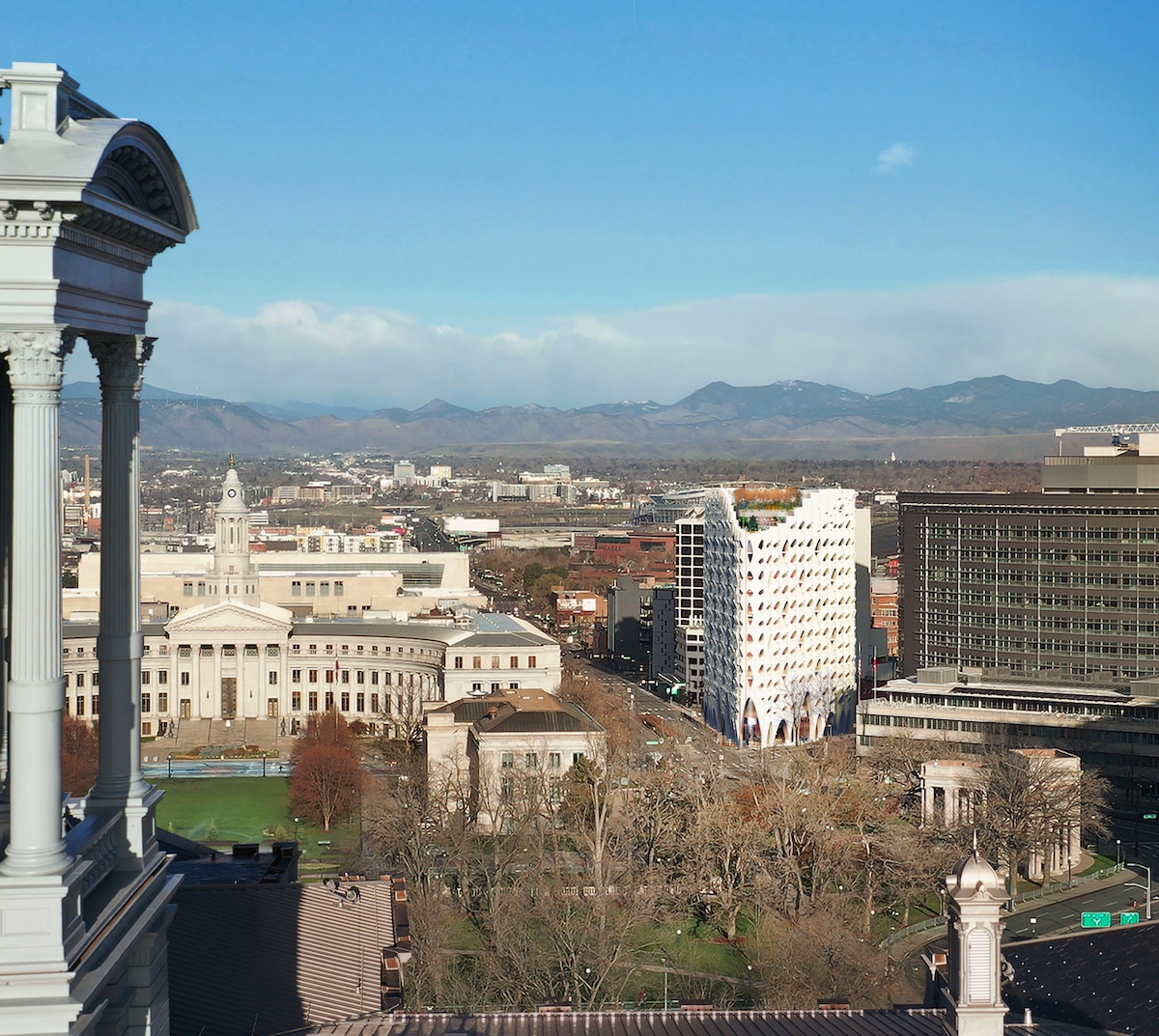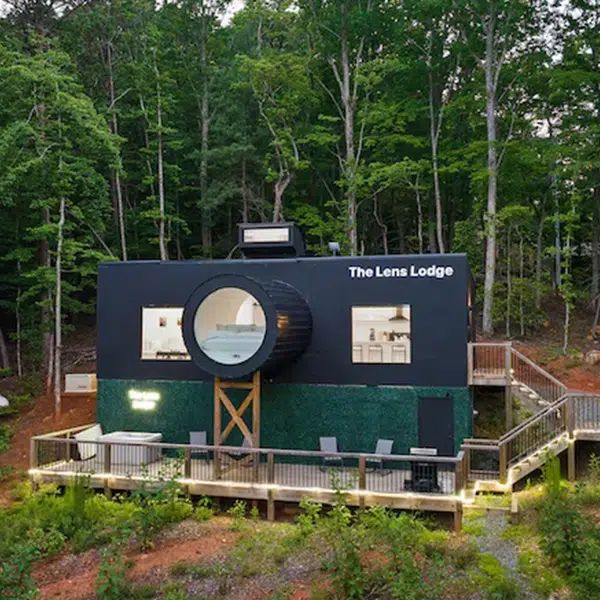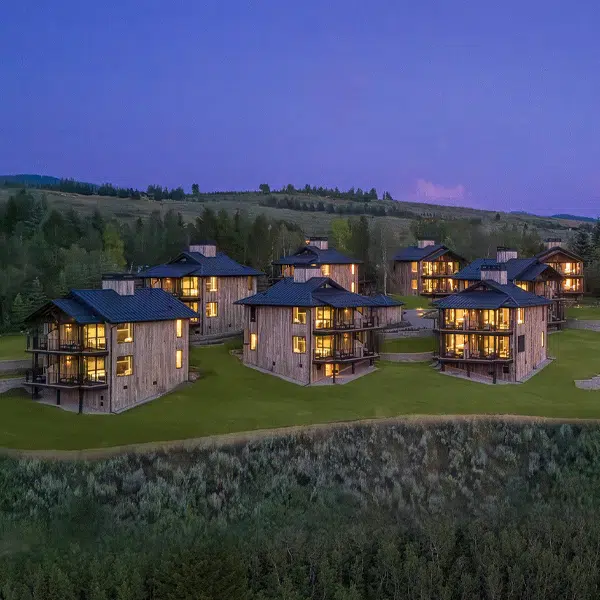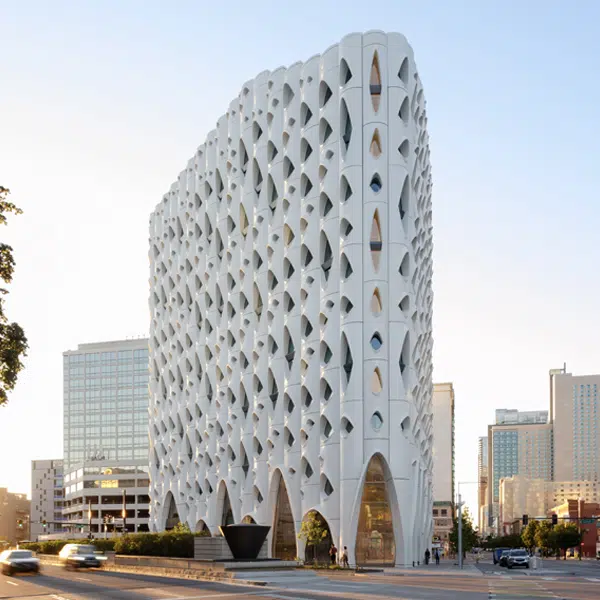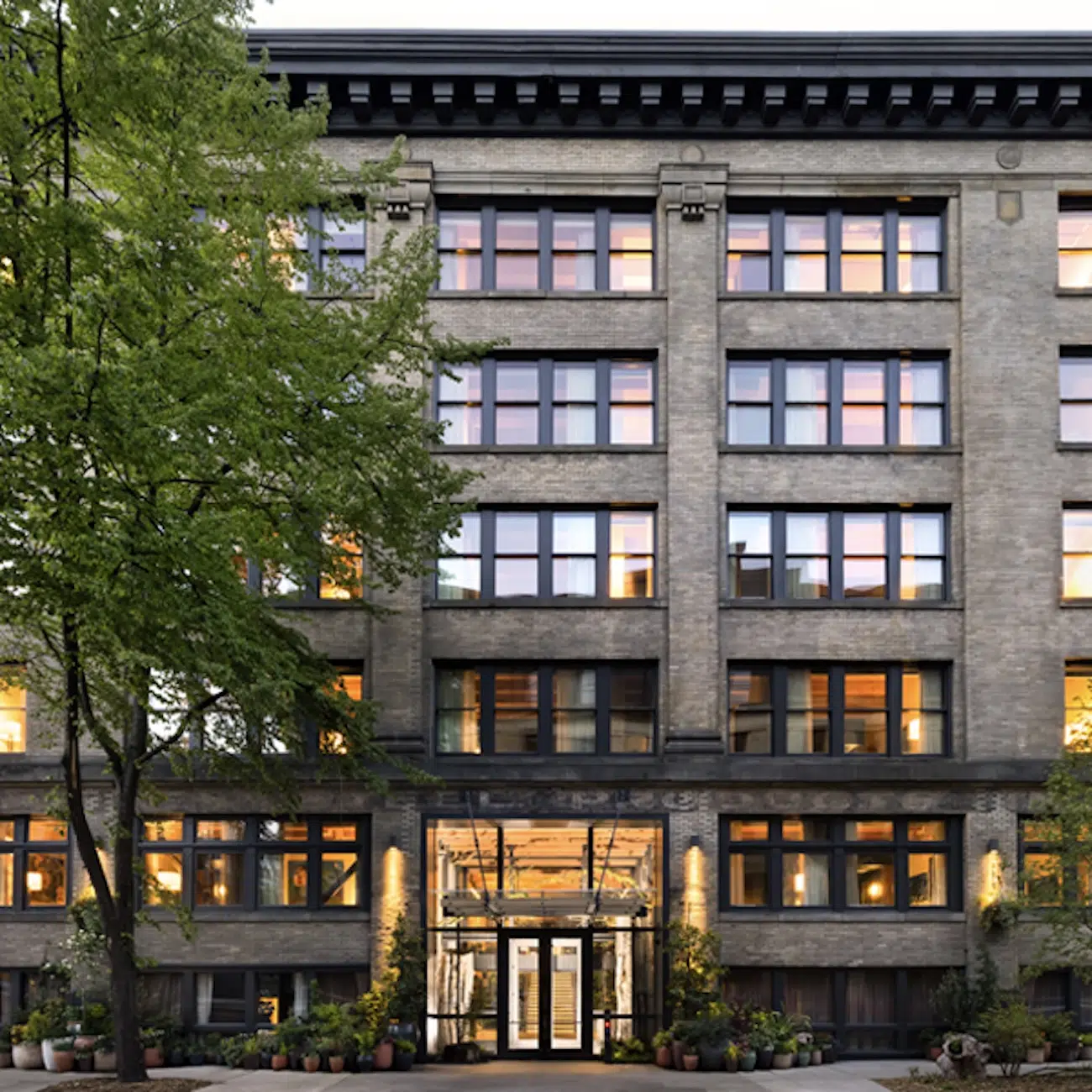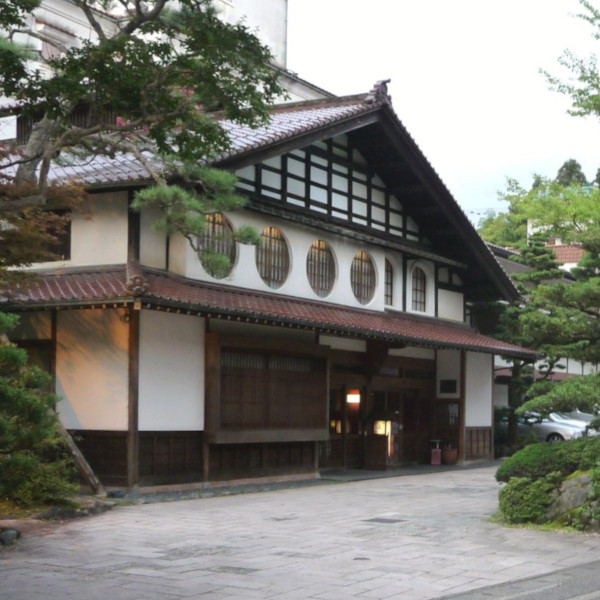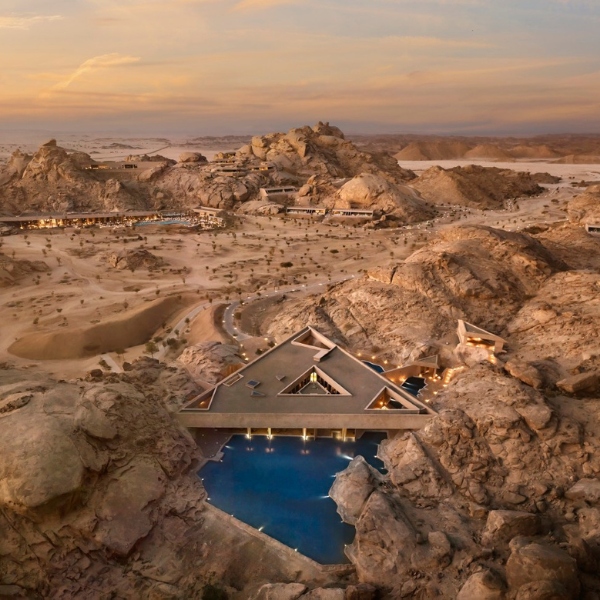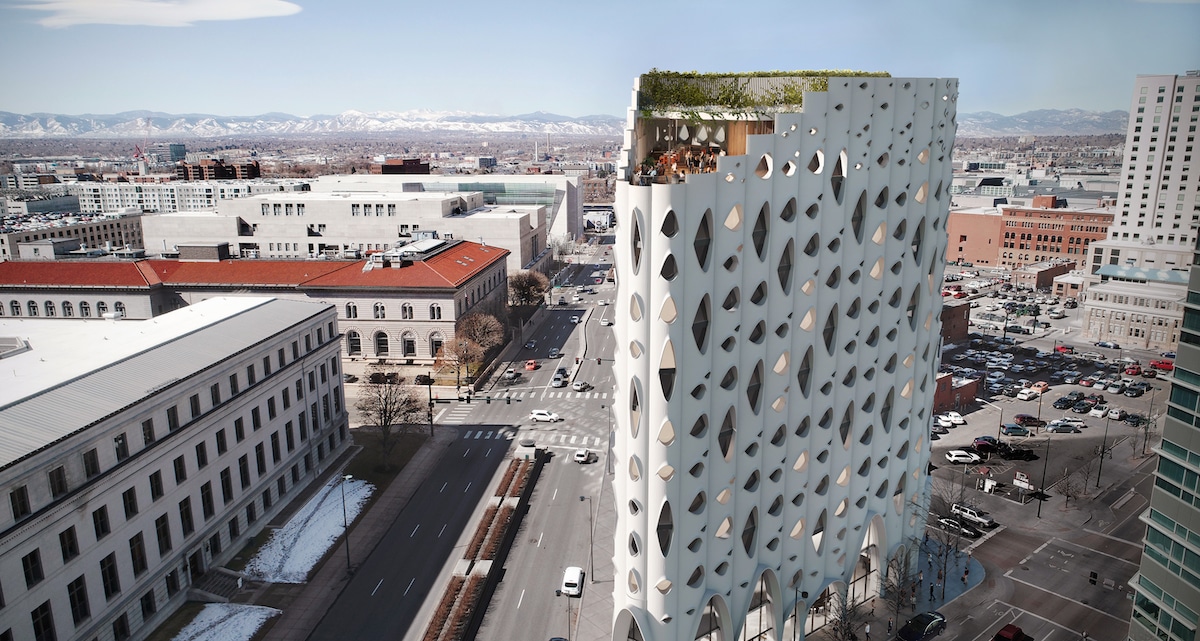
Denver will soon be home to America's first carbon-positive hotel. Developed by Urban Villages and designed by Studio Gang, Populus is a modern 265-room hotel that will open in late 2023. For the design, Studio Gang took inspiration from the patterns of Colorado's native Aspen trees, with the building's windows mimicking the trees' distinctive “Aspen Eyes.”
Situated in downtown Denver, the hotel will achieve its carbon-positive status thanks to its sustainable design and a unique off-site project. The hotel has committed to planting enough trees to represent over 5,000 acres of forest. This will offset an embodied carbon footprint equivalent to nearly 500,000 gallons of gas and remove additional carbon dioxide from the atmosphere.
“We’ve created Populus to be a catalyst for change and to meet the increasing preference by today’s consumers to travel responsibly, experience places in an authentic way, and connect more deeply with nature and each other,” says Jon Buerge, Chief Development Officer and Partner at Urban Villages. “An earth emergency demands that we strengthen our influence, and Populus is just the beginning.”
Populus is already off to a positive start, right from construction. Using low-carbon concrete, high-recycle content materials, and minimizing waste are all helping the hotel reach its carbon-positive goal. There is also no planned on-site parking, which will encourage visitors to take public transportation or use existing structures. This saves the hotel from having to build a parking garage, which requires the use of materials rich in carbon.
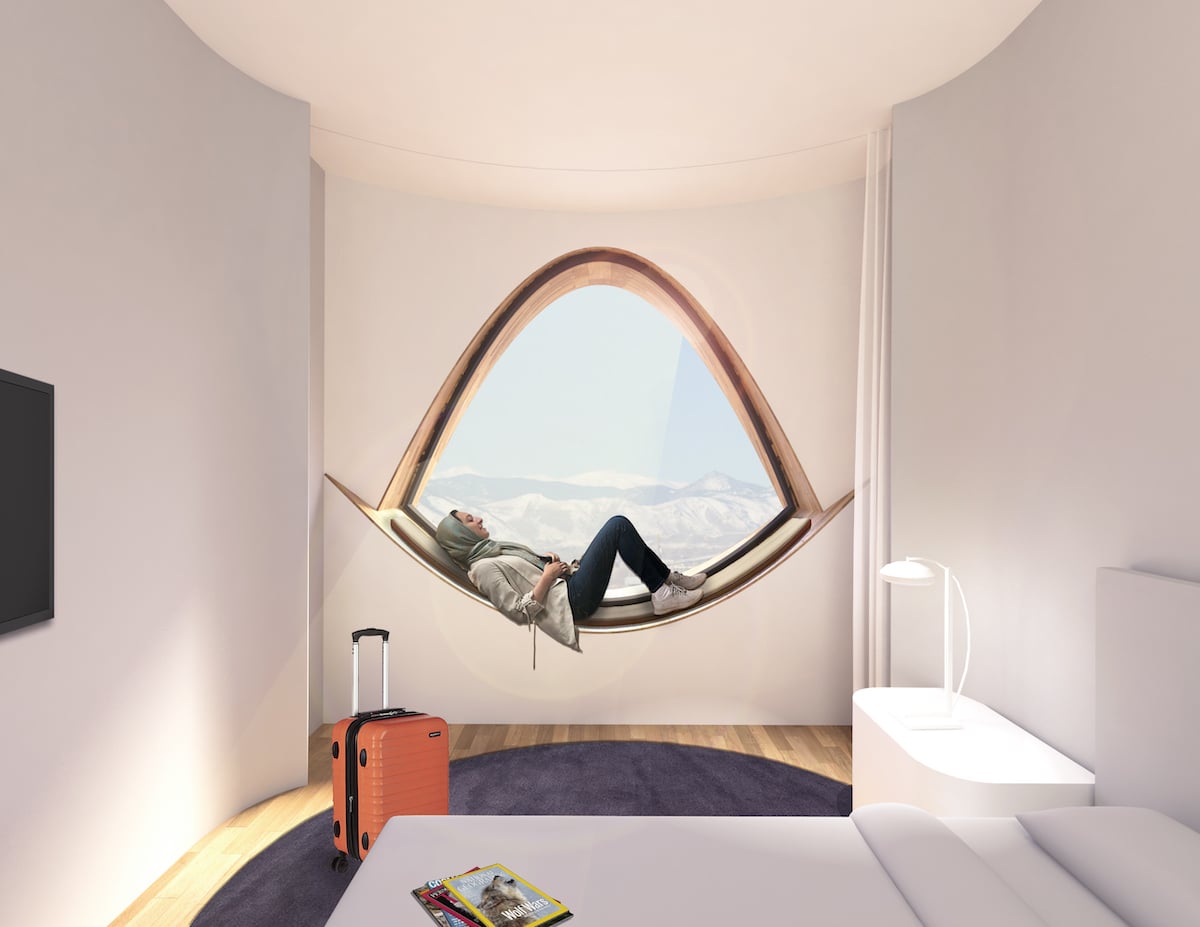
When thinking about the look of the hotel, Studio Gang turned to nature for its design inspiration. And the building's unique windows, not only recall the pattern of the Aspen tree but also help its energy efficiency. The “lids” over each window provide interior shade, which improves energy use. They also carefully funnel away rainwater to keep the building looking pristine.
As a benefit to guests, each room will have incredible views and the windows transform into seats or desks that invite them to enjoy the great outdoors—even when they're inside.
The hotel will also include a rooftop restaurant and bar that overlooks the mountains and city skyline, with the intent to immerse guests in nature. The rooftop will be open to the public and will be filled with regional vegetation, serving as a lush place for the community to socialize.
“We’ve designed Populus to be a new destination in downtown Denver that combines these environmental and social ambitions,” shared Jeanne Gang, founder of Studio Gang. “With its distinctive aspen eye windows, the building cultivates a lively pedestrian scene in its neighborhood, while simultaneously connecting you with views of the natural wonders beyond the city limits.”
When it opens in Denver in 2023, Populus with be the first carbon-positive hotel in the United States.
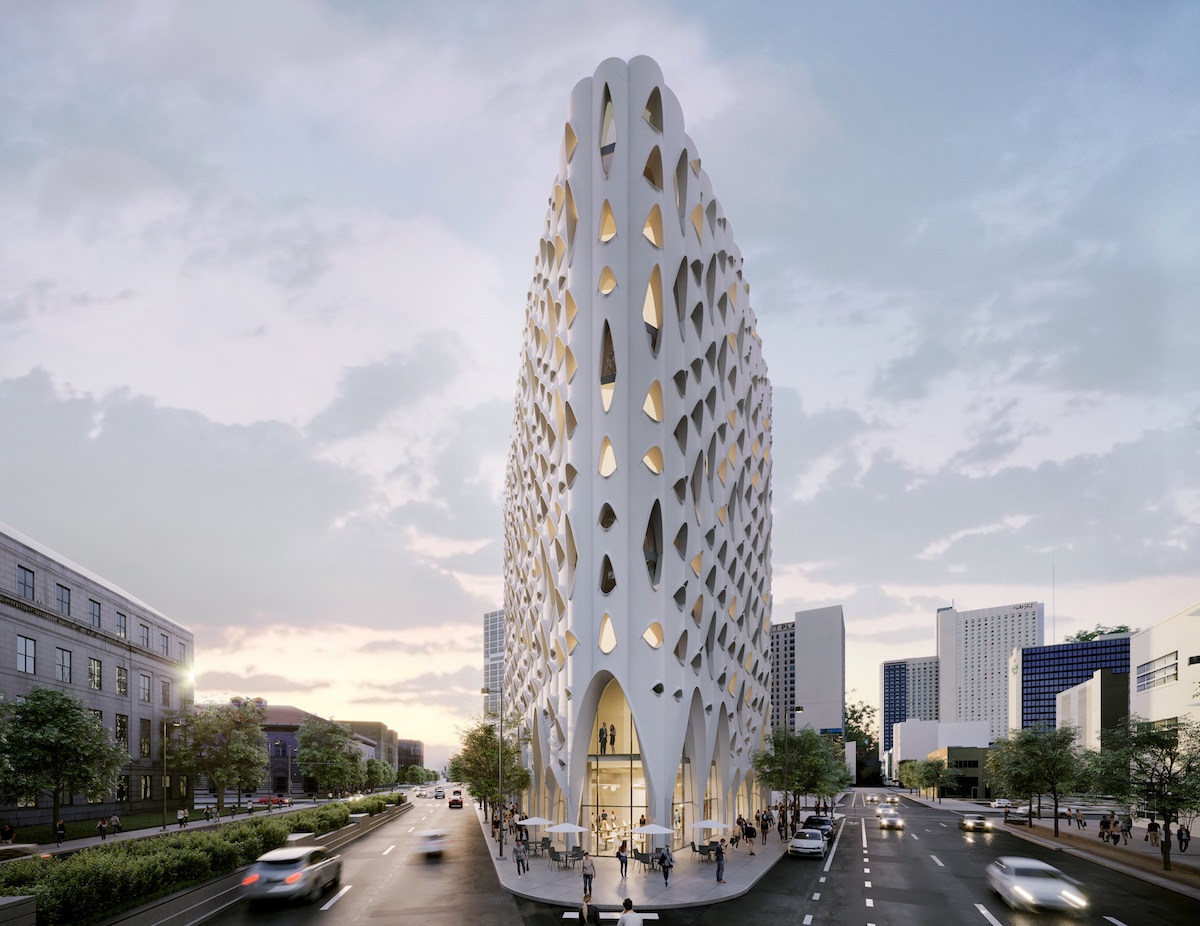
Architects Studio Gang took inspiration from the patterns on the native Aspen tree for the building.

Photo: urban_light/Depositphotos
These patterns show up in the hotel's windows, which are also energy efficient and channel rainwater away from the building.
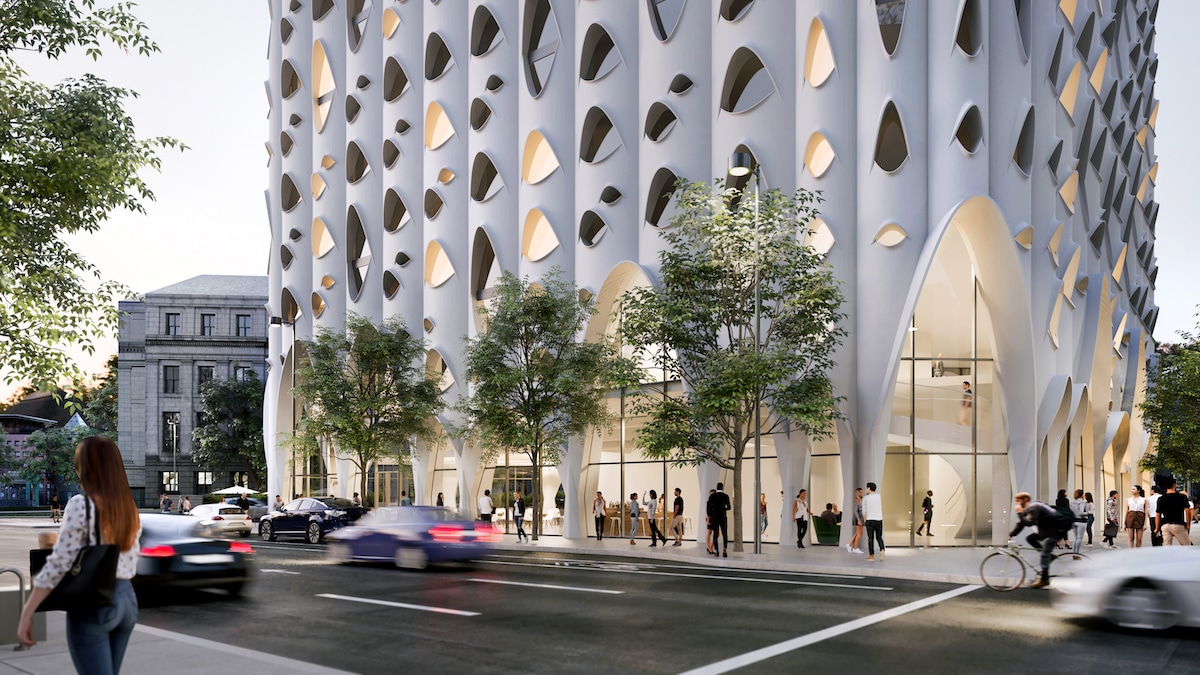
The hotel will have a public rooftop bar and restaurant with sweeping views of the mountains.
